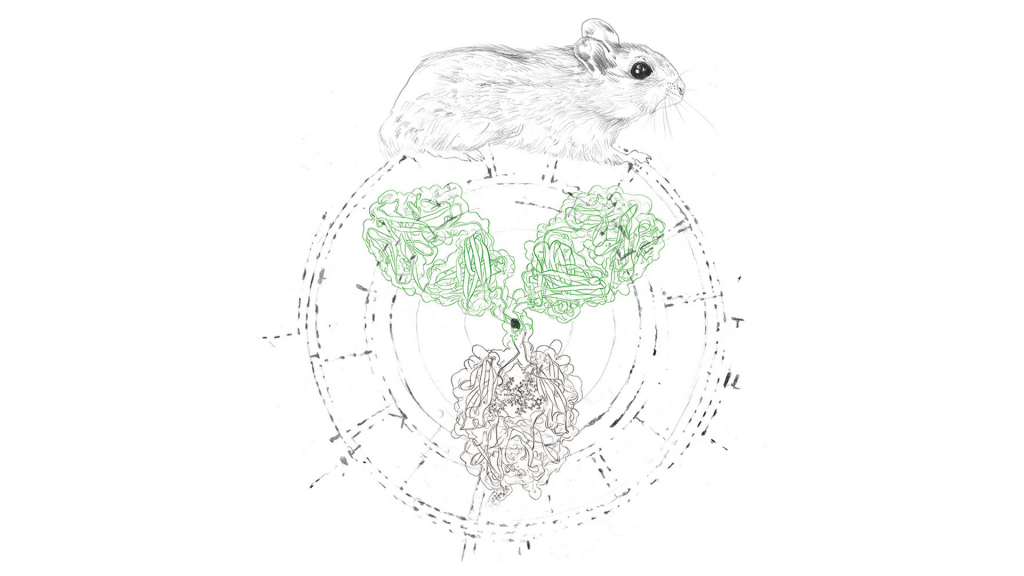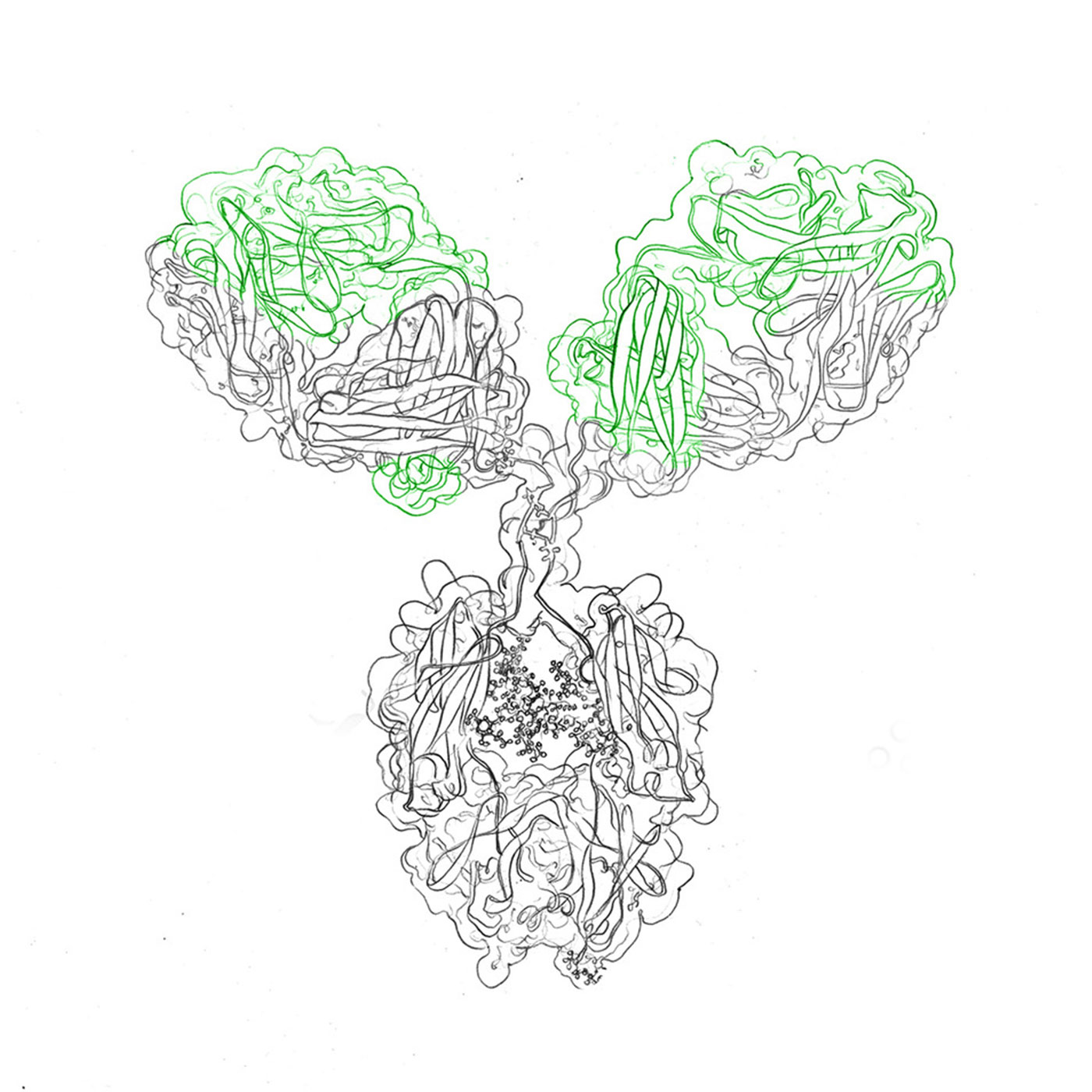Custom recombinant antibody production
We are a leading service provider for custom recombinant antibody production. Get in contact!
The transient expression of recombinant antibodies holds immense significance for scientific breakthroughs and therapeutic advancements. Recombinant antibodies serve as critical tools across various industries, from advancing medical treatments to facilitating groundbreaking research.
Among the methodologies employed in antibody expression, evitria has developed a distinctive approach known for its efficacy in transient antibody expression using CHO cells. You’ll learn more about it in this article.
Recombinant antibodies, synthesized through genetic engineering techniques, are pivotal tools in various scientific and medical applications.
These antibodies are crafted by introducing specific DNA sequences into host cells, enabling the production of antibodies with tailored characteristics.
Subscribe to our Newsletter
Get all the latest updates, and learn about our advancements in antibody production.
Subscribe now
Their significance lies in their versatility and precision. Unlike traditional antibodies derived from animals, recombinant antibodies offer several advantages:
Recombinant antibodies, owing to their tailored properties and consistent quality, serve as indispensable tools in scientific research and medical advancements, driving innovation and precision in various fields. This is why evitria has specialized in their production.
Within the spectrum of expression systems employed for recombinant antibody production, Chinese Hamster Ovary (CHO) cells stand out for various reasons.
CHO cells offer a unique blend of characteristics crucial for efficient antibody production. One notable advantage is their ability to perform complex post-translational modifications, mirroring human-like glycosylation patterns. This similarity in glycosylation ensures the production of antibodies with structures more closely resembling those found in humans, enhancing their efficacy and reducing immunogenicity.
Moreover, CHO cells demonstrate robust growth characteristics, allowing for scalability in culture, a pivotal aspect when aiming for large-scale antibody production. Their adaptability to suspension cultures simplifies the scalability process, enabling efficient handling and increased yields, essential for industrial-scale production demands.
Additionally, CHO cells (the use of which does not involve live animals today) are well-documented for their stability in long-term culture, maintaining desirable genetic traits over multiple passages. This stability contributes to consistent antibody production and minimizes the risk of genetic drift, ensuring reproducibility and reliability in the manufacturing process.

Transient and stable transfection methods play distinct roles in recombinant antibody production. While stable transfection offers sustained antibody expression through integration into the host cell’s genome, evitria favors the transient method for its unique advantages.
Stable transfection involves integrating the foreign DNA permanently into the host cell’s genome, ensuring a continual production of antibodies. However, this method often demands extensive screening to select high-producing cell lines and requires more time and resources for development.
On the contrary, transient transfection offers flexibility and speed. This method doesn’t necessitate the integration of foreign DNA into the host cell’s genome, allowing for a rapid antibody production turnaround. Furthermore, transient transfection enables the swift expression of antibodies without the need for clonal selection or the establishment of stable cell lines.
evitria’s preference for transient transfection is driven by the accelerated production timelines and the ability to quickly adapt to diverse customer demands.
Read more: Benefits of transient transfection
We are a leading service provider for custom recombinant antibody production. Get in contact!

At evitria, the antibody production workflow is meticulously designed to ensure efficiency, quality, and timely delivery of recombinant antibodies. The process is streamlined to meet stringent standards while maintaining a rapid timeline – typically five weeks from start to finish.
The workflow typically begins with the initiation of a project, which swiftly progresses through key stages:
Project initiation
Larger-scale expression
Purification
Final analytics
Shipment
The antibodies resulting from evitria’s workflow embody several key advantages. They are consistently high-quality, meeting stringent industry standards. With low levels of endotoxins (<1 EU/mg), these antibodies minimize potential adverse effects, ensuring suitability for a wide array of applications. Additionally, the workflow’s adaptability allows for tailored production, accommodating specific customer requirements.
evitria’s expertise in transient expression of recombinant antibodies (rAbs) using CHO cells stands as a cornerstone of its service portfolio. We have the technology and knowledge to deliver unparalleled solutions for rapid and high-quality antibody production.
The transient expression approach adopted by evitria leverages the advantages of CHO cells, ensuring a swift and efficient process that surpasses traditional techniques. This methodology allows for custom antibody production in large scales within remarkably short timelines – typically as brief as 5 weeks – while maintaining exceptionally low levels of endotoxins (<1 EU/mg).
The service portfolio offered by evitria spans a wide spectrum, encompassing custom development and manufacturing of various rAbs, including afucosylated antibodies, Fc-silenced antibodies, and other recombinant proteins. This allows us to cater to diverse customer needs across industrial, research, and therapeutic domains.
The key capabilities within evitria’s service portfolio include isotype switching, chimerization, glyco-engineering, and the development of bispecific or trispecific antibodies. These capabilities, coupled with the utilization of CHO cells, empower evitria to deliver tailored solutions meeting specific requirements while ensuring high quality and rapid turnaround times.